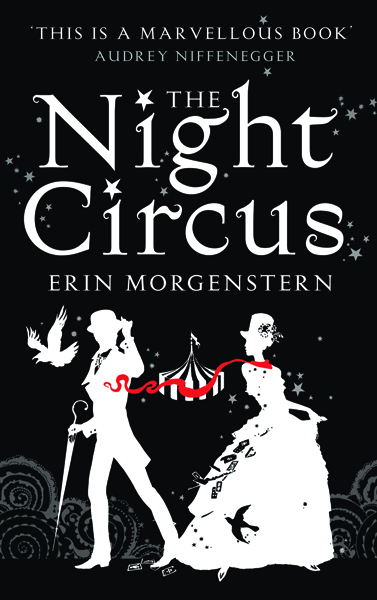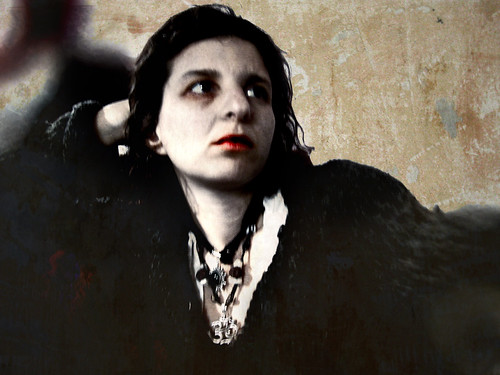And so, after a month's absence, my Novel Idea is back in bloom.
After four weeks of a 1k a day regime, I lost the urge to write completely. One month to the day after making that last post, I suddenly felt the sap begin to stir.
You really can't control these things. One moment you would rather superglue your fingers to the insides of your pockets than type another sentence, the next, you can't sleep, eat, or think about anything other than the plot and how much it needs to be on paper.
It's a testament to alternate reality. The story hasn't changed. It's still the exact same object you fell out of love with, so it's you - you've changed. If we writers could figure out the key to exactly what it is that changes within us, we'd all be knocking out a novel a month.
Instead, as mere mortals, we simply have to surf the wave when it rises, for however long the tide remains turned.
When you put a story down, you do so whilst assuring yourself 'I will come back to it later,' as though it's no big deal.
The first thing you then have to do when you 'come back to it later,' is remember where you left off. This may sounds simple, but at 43,000 words there's a whole lot of plot to reacquaint yourself with. Especially with Historical Fiction, where you previously spent weeks, even months, immersing yourself in the geographical and cultural world of your characters.
Putting things down is easy. Picking them up - not so.
It's like untangling the strings of a complex marionette that has been discarded in the corner of the room. Each thread connects to an important function in the story, and you need to be in possession of each of those threads before you can make your characters walk and talk.
In all of my previous novels, I've achieved this by re-reading the entire novel before continuing to add to it.
The problem being that I can't help editing as I go.
I have one half-completed novel that is the most polished manuscript you'll ever clap eyes on, because every time I come back to it, I re-read it and edit it. By the time I've done all that, I add perhaps two more chapters before putting it down again.
Immaculately edited, but the likelihood of it ever being completed - slim.
For this reason, I refuse to read back through the manuscript for Blood Rose. I know that I could all too easily lose myself in it without ever progressing. I'm going to have to give myself a few pages lead-in, and review all of the research material. This should be enough, and leaves me with the wonderful surprise of getting to read it all afresh when I finally do come to edit.
Whilst preparing to start this process the other day, I opened a file with a forgotten scene I had removed. Perhaps I saved it with a view to working it back in somewhere. I probably won't, but I hate to dispose of things, so I'll blog it instead.
It's from fairly early on, when Afsar, the protagonistic princess, has been shunned by her grandmother and decides to take out her disappointment on her long-suffering maid, Şelale.
It was to be another month before my father returned, and things did not go well in his absence. In particular, my young sister, Fakhr, had taken quite literally the words of our grandmother and found herself someone else to love in her brother’s stead.
That someone, was me.
There could be no escape. If I shut my door on her, she would curl up on the other side and cry until I could stand it no more. I would invite her in to my room just to make the noise stop, and she would perch at the end of my bed, staring at me.
Whilst she did this, I could not risk writing. I did not know Fakhr well enough to know whether she would tell anyone else. Perhaps she would be so impressed by my ink magic that she would slip a sample of verse into her pocket and run to show my grandmother.
For as long as she sat in my room, I could do nothing.
I tried to send her on walks with Şelale, but she refused to go unless I went with her. Sometimes she would remain with me the entire day, falling asleep on the sheets next to me. Only then would she leave with Şelale, for she did not know that she was leaving.
After almost two weeks of this, I felt as though I were losing my mind. My chambers had always been my own, because I was the eldest daughter. Privacy was mine by right, as Arezoo had her own quarters on the opposite side of the palace.
Fakhr’s mother, Oldooz, was a half-witted woman larger than Arezoo and Ezat stood together. Either time had been exceedingly cruel, and she had once been very beautiful, or my father enjoyed her as he enjoyed his clowns, as a novelty. How she had become pregnant, nobody was entirely sure, for she could barely dress herself. Within the harem, the only theory that persisted was that she spent so much time lying on her back that my father must have fallen on top of her by accident one night.
As amusing as this was, it did not help me, for I could not appeal to Oldooz to keep her daughter entertained.
“I am going out of my mind,” I confided to Şelale on one of the rare occasions my sister had fallen asleep elsewhere.
“For the sake of a little girl?”
She smiled as she brushed out my hair.
“She is not a little girl, she is a div,” I snorted, using the worst word I knew for a creature from hell.
Şelale laughed at this and I winced as my hair snagged in her comb.
“Be careful,” I snapped, cutting her laughter short.
“Sultana, she is only a child, as you once were. She loves you, can you not love her back?”
“Love is a silly word.”
“That is a terrible thing to say.”
“Is it? My father loves me, but he does not spend every day by my side.”
“He is an important man. He has many things to do to make sure you are safe in this world.”
“I have many things to do of my own. How can I write when she is always here?”
“It won’t be long now until Mahmoud returns, then she will be his problem again.”
I liked the way she used the word ‘problem’ to describe my sister, but she did not feel the urgency I felt. She did not truly know the torment it was to be denied my only pleasures: my privacy and my poems. How could she? Simple Şelale, who slept in a room full of other women, who could not write more than two words. She thought my frustration amusing.
“Here,” I said, offering my hand for the comb. “It is my turn.”
She knelt before me, on the floor. Her hair was thicker than mine, and curly like swine tails. I felt her relax as I fingered it, teasing out strands that snaked in on themselves.
Eventually, I placed the comb by the roots, right up by her scalp.
I yanked down as hard as I could.
She shot backwards as though I had whipped her, one hand clasped to the delicate skin that had ripped, the other to her mouth. As she looked up at me, I could see her eyes welling with tears from the shock.
“I’m sorry,” I said. “Perhaps it is better you brush your own hair in future.”
I held the comb out to her. She reached shakily forward and took it, slowly rising to her feet before making her way to the door.
I did not move for a long time after she left. It is the memory of pain, rather than pain itself, which is the important thing. Not what we feel, but what we learn from feeling it. If you kick a dog, it knows not to bark at you again. If you hit a servant, he know not to drop the plate. If you smack a child, it knows not to cry.
Pain was a teacher, of that much I was sure. This is why I did not understand why my father had shot the Babí, or why Allah had stolen Sarvar, with her child still inside her. What can anybody learn when they are dead?
Or perhaps that was the lesson. Perhaps it was only worth teaching those who were capable of learning. Perhaps Allah had decided that Sarvar had been a poor student. Perhaps my father felt that, no matter how hard he hit the Babí, they would never understand the right way to behave.
Soon, I came to realise my own mistake as a teacher.
I should have explained to Şelale why I was hurting her. How would she ever learn if I did not explain my actions? She would remember the pain, but not the lesson.
Perhaps I already knew in my heart of hearts that Şelale could not be taught.











